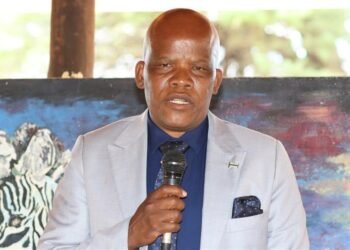The President of the Republic of Liberia, H. E. Dr. George Manneh Weah, has by Proclamation declared Friday, November 11, 2022, as “National Census Day” and is to be observed throughout the Republic as a National Holiday.
According to a Foreign Ministry release, the 2022 National Population and Housing Census, which commences this week to be declared as Census Night will enable the enumerators to begin the household listing.
The Proclamation calls on all ministries and agencies of government, enterprises (Large or small), the patriotism and loyalty of every citizen and to the goodwill of every foreign national as well as local government officials to assist the census authorities in explaining, influencing, and endorsing the participation of everybody in this massive, national undertaking, given the advantages and usefulness of the Census to the overall national socio-economic development of the country.
The Proclamation further mentioned that the census shall be conducted and directed by the Liberia Institute of Statistics and Geo-Information Services (LISGIS) in the most expeditious manner, but its success shall be dependent upon the total involvement of all citizens and foreign residents within the borders as well as all Liberian citizens residing abroad to mobilize the resources and administrative machinery necessary for the implementation and execution of this project.
The Presidential Proclamation also stated that the Liberia Institute of Statistics and Geo-Information Services (LISGIS) shall undertake the National Population and Housing Census of the Republic of Liberia in accordance with Section 6, Chapter 50A.8 of the LISGIS Act to further amend the new Executive Law, Title 12, of the Liberian Code of Law Revised.
“The objectives of the 2022 Census are, among other things to; participate in the 2020 round of the World Population and Housing Censuses, provide up-to-date information of demographics, economic and social amenities, know the present size and structure of the population and its spatial distribution among counties, districts, clans, cities, townships, and localities, provide a benchmark on which monitoring and evaluation of various national and international development goals could be based (i.e. AfT, National Vision 2030, SDGs, AU Vision 2063, etc), construct an updated master sampling frame for future sample surveys and develop a geo-referenced spatial database on current statutory boundaries, localities, and social amenities”, the proclamation noted.






























































